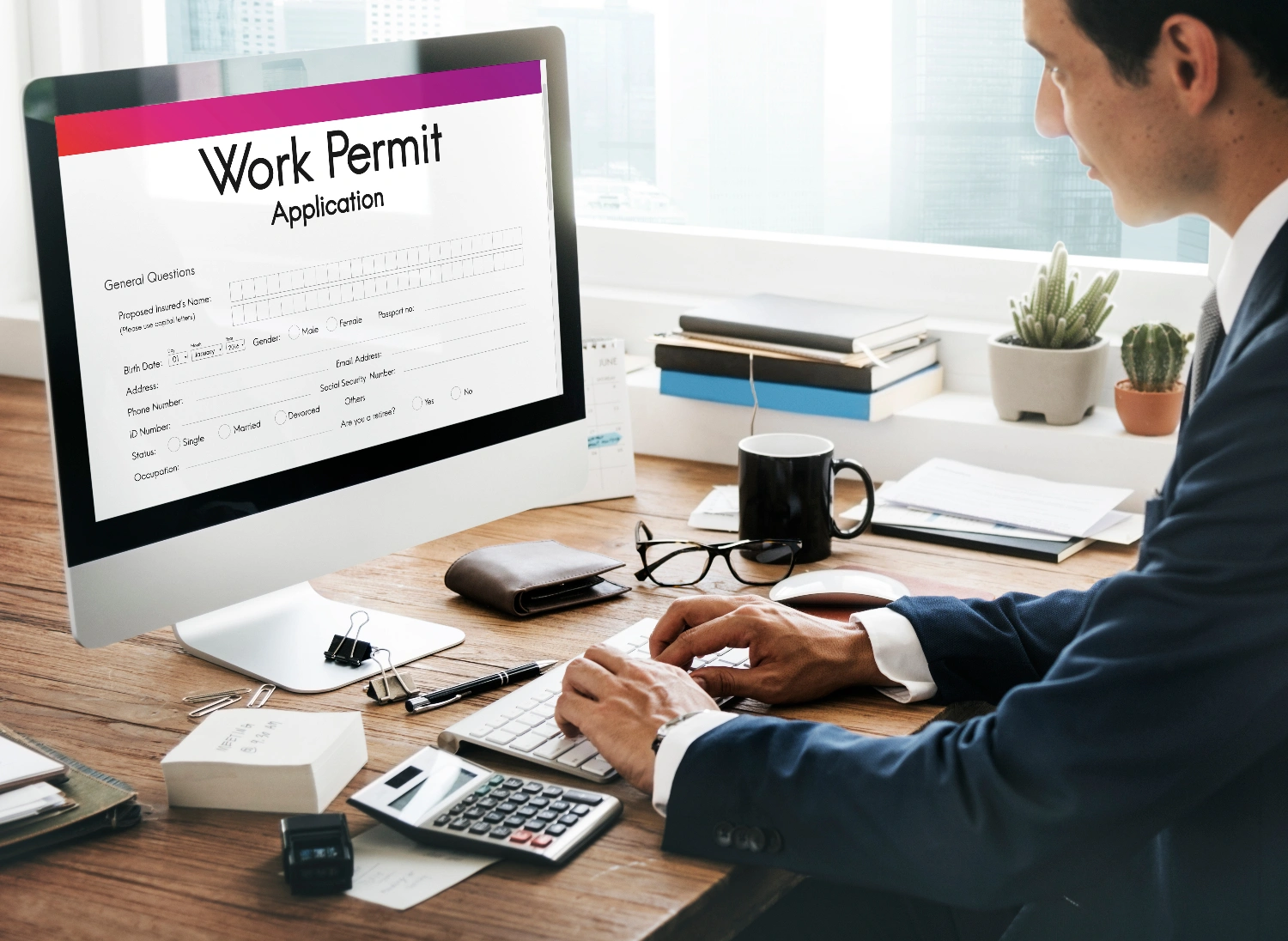
Foreign nationals seeking employment in Canada while awaiting permanent residency (PR) status can apply for a Bridging Open Work Permit (BOWP). This specialized permit ensures that eligible individuals can continue working legally in the country without being tied to a specific employer or job.
Understanding the Bridging Open Work Permit
The BOWP is a type of Open Work Permit (OWP), meaning that it does not restrict the holder to a single employer or occupation. It provides flexibility for foreign nationals transitioning to permanent residency and can be issued for up to two years. Immigration officers also have the discretion to extend BOWPs if necessary.
Who Can Apply for a BOWP?
To qualify for a BOWP, an applicant must meet the following requirements:
- Residency Status: The applicant must be physically present in Canada with valid temporary resident status.
- PR Application: They must have applied for permanent residency as the principal applicant under one of the following economic immigration programs:
- Canadian Experience Class (Express Entry)
- Federal Skilled Worker Program (Express Entry)
- Federal Skilled Trades Program (Express Entry)
- Provincial Nominee Program (PNP) (if no employer restrictions apply)
- Quebec Skilled Worker Program (QSW)
- Agri-Food Pilot
- Home Child-Care Provider Pilot or Home Support Worker Pilot
- Caring for Children Class or Caring for People with High Medical Needs Class (applications must have been submitted before June 18, 2019)
- Work Authorization: The applicant must hold one of the following statuses:
- A valid work permit
- Maintained status after applying for work permit renewal
- Eligibility to restore temporary resident status with work authorization
- Acknowledgement of Receipt (AOR): The applicant must have received an AOR letter confirming their PR application is in process.
- Application Processing Stage:
- If applying through Express Entry or QSW, the application must have passed the completeness check under Section 10 of the Immigration and Refugees Protection Regulations.
- If applying through other eligible programs, a positive eligibility assessment must have been completed.
Employment Location Restrictions for BOWP Holders
Although BOWPs typically allow for unrestricted employment across Canada, certain restrictions apply based on the applicant’s PR program:
- Provincial Nominee Program (PNP): The applicant can only work within the province or territory that nominated them.
- Quebec Skilled Worker (QSW) Applicants: They must select Quebec as their employment location.
Application Process for a BOWP
Applying for a BOWP is primarily done through the Immigration, Refugees and Citizenship Canada (IRCC) online portal. The process involves:
- Confirming eligibility for the permit.
- Selecting “Open Work Permit” as the permit type.
- Completing the necessary application forms.
- Submitting supporting documents as per the checklist for the relevant immigration pathway.
- Paying applicable fees, including the processing and OWP holder fees.
- Submitting the application for processing.
Upon approval, the BOWP remains valid until one of the following occurs:
- A decision is made on the applicant’s PR application.
- The BOWP (valid for up to 24 months) or the applicant’s passport expires, whichever comes first.
If the PR application remains under review beyond the BOWP’s validity, IRCC may grant an extension of up to 12 months at a time.
Traveling While a BOWP is in Process
Applicants can travel outside Canada while their BOWP application is being processed, a procedure that usually takes three to four months. However, those whose work permits expire while abroad must wait for BOWP approval before resuming work upon reentry to Canada.
Options for Work Permit Holders with Expired Permits
A valid work permit is necessary to apply for a BOWP. If a foreign national’s work permit expires before they submit their application and they are ineligible for status restoration, they are no longer authorized to work in Canada. In such cases, they have three primary options:
- Apply for a Visitor Record: This allows the individual (and their family, if applicable) to remain in Canada with legal status, but they must stop working.
- Leave Canada: The individual can return to their home country and await the decision on their PR application.
- Apply for a Temporary Foreign Worker Program (TFWP) Work Permit: If an employer is willing to secure a Labour Market Impact Assessment (LMIA), the foreign national may apply for a new work permit under the TFWP. However, they must cease working until they obtain legal authorization.
Open Work Permits for Family Members
Family members of BOWP holders may also be eligible for an OWP, provided that both the principal applicant and their family members meet specific criteria.
Principal Applicant Requirements
- Must be residing and working in Canada (or have plans to do so).
- Must hold a valid work permit or have received approval for one.
- Work permit must remain valid for at least six months beyond the date IRCC receives the family member’s OWP application.
- Work permit must have been issued following a PR application under an economic class pathway.
- If applying under the QSW, the applicant must hold a Certificat de sélection du Québec.
- Must work in a National Occupational Classification (NOC) TEER 0 or 1 occupation or select TEER 2 or 3 occupations.
Family Member Requirements
- Must meet general work permit eligibility requirements.
- Must have valid temporary resident status, have applied for maintained status, or be eligible for status restoration.
- Must be in a genuine relationship with the principal applicant as:
- Their spouse or common-law partner
- Their dependent child
- A dependent child of a dependent child (i.e., a grandchild)
Conclusion
The Bridging Open Work Permit serves as a critical lifeline for foreign nationals in Canada, allowing them to continue working while their permanent residence application is being processed. By ensuring that eligible applicants can maintain employment without employer restrictions, the BOWP provides economic stability and facilitates a smoother transition to permanent residency. Understanding the eligibility criteria and application process is essential for those looking to leverage this opportunity.














